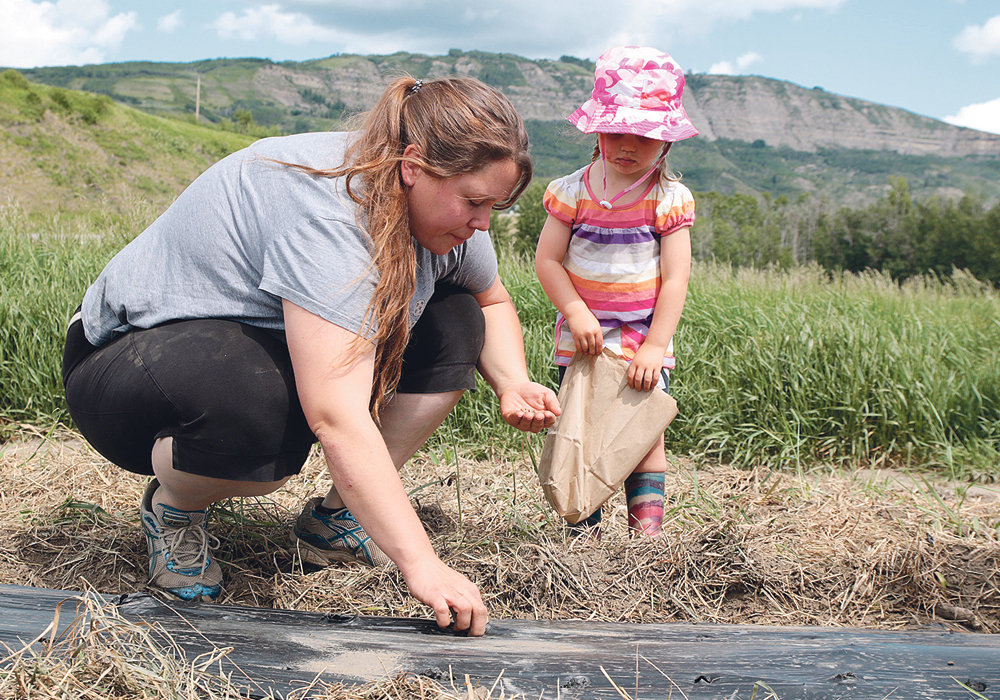The Northern Co-hort partners with farmers in northeastern British Columbia to help them expand their market with local consumers
FORT ST. JOHN, B.C. — A new agriculture group in northeastern British Columbia aims to bolster small-scale producers by expanding markets with local consumers.
The Northern Co-hort, a branch of the Northern Environmental Action Team, also plans to address food security in the region, finding ways for more local products to end up in consumers’ grocery bags.
“It’s for producers trying to find the gravy train,” said Bess Legault, co-ordinator with the group, during a pea planting event in early June.
“They don’t just want to backyard garden and make $200 at a farmers market. We are looking at livelihoods and real solutions with food.”
Read Also

Farming Smarter receives financial boost from Alberta government for potato research
Farming Smarter near Lethbridge got a boost to its research equipment, thanks to the Alberta government’s increase in funding for research associations.
The group was founded in late 2018 after Legault realized there were opportunities to address problems small-scale producers had been facing in the region.
For instance, some producers have found it difficult to market their product, given they are short on time and labour to attend markets.
As well, with little on-farm income, some small-scale producers lack the infrastructure to help grow their businesses. Research dollars for their products are also scarce.
“Marketing is one of the biggest challenges,” Legault said. “In the past it has been done individually, but we can find ways to make it a collaborative effort.”
Michelle Schaeffer, who farms near Rose Prairie, B.C., said Northern Co-hort has helped her sell her products at the farmers market when the family is unable to.
“It’s like an extension of our own arms,” Schaeffer said. “Being busy with our kids and tending to our livestock every day, we can’t be at the market every weekend.
“It’s been a gamechanger, allowing us to grow and maintain our presence in front of our customers.”
Legault said she would like to eventually see a washing and grading facility, a freeze-drying facility or year-round greenhouses open in the region.
“It’s not cumbersome,” she said. “You can actually have a business plan and the support is there. We’re trying to ignite and connect the resources to people who are early adopters and want to try alternative production.”
Going forward, she said she would like to see accreditation, in the form of branding, for Peace region food.
“People are really proud of what they produce here,” she said. “We want to increase this local system so we can enjoy our products longer, not just for only a few months of the year.”


















